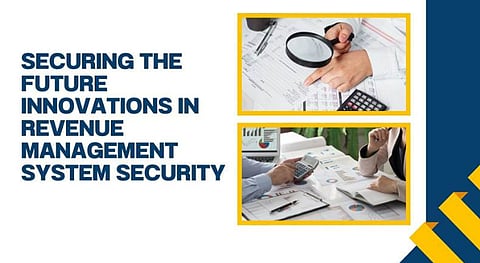

In this modern era, Revenue Management Systems (RMS) have become essential for businesses across industries, enabling data-driven pricing and financial strategies. As these systems evolve, so do the security threats they face. In his latest research, Vikas Reddy Vallakonda explores the emerging security measures safeguarding RMS platforms. His work highlights how advanced technologies are transforming the way enterprises protect sensitive financial data.
The vast amounts of financial and transactional data processed by RMS platforms make them prime targets for cyber threats. To mitigate risks, enterprises are implementing multi-layered security frameworks, which reduce successful breach attempts by 68.3%. Encryption protocols such as AES-256, along with network segmentation and access control measures, have significantly improved data security. The incorporation of Hardware Security Modules (HSMs) has further enhanced key management security.
Encryption has become a critical component of data security strategies. Studies show that organizations implementing standardized encryption protocols experience fewer successful breach attempts. The implementation of Transport Layer Security (TLS 1.3) for data in transit has further reduced man-in-the-middle attack attempts. By securing sensitive pricing algorithms and customer transaction records, enterprises are minimizing financial loss due to cyberattacks.
As regulatory frameworks become increasingly complex, organizations managing RMS platforms must ensure compliance with multiple standards. Companies investing in robust compliance programs report a reduction in regulatory penalties and a significant improvement in audit success rates. Compliance frameworks such as PCI DSS have proven effective in reducing security incidents related to payment data. Businesses that integrate compliance strategies into their operations also experience greater investor confidence.
Regulatory compliance is not a one-time effort but a continuous process that requires active monitoring. Organizations that implement real-time compliance tracking systems report fewer regulatory interventions. Automated compliance reporting tools also improve audit efficiency, reducing manual efforts and operational disruptions. These systems ensure businesses stay ahead of evolving legal requirements while minimizing compliance-related risks.
With the advent of cloud-based RMS platforms, additional security concerns are raised. Organizations' adoption of cloud-native security controls leads to comparatively less number of security incidents than an equivalent organization using traditional approaches. Unique key developments in cloud security include real-time monitoring, automated security assessments, and strategies to isolate networks against application attacks. Disaster recovery planning has further progressed with automated failover mechanisms that reduce system downtime.
Disaster recovery planning has become significantly more vital than ever since businesses are now heavily dependent on cloud infrastructure. Automated backup and recovery methods state reliable operations in showing high reliability. These minimize data losses and downtime, thereby believing continuity even in cyberattacks or technical failures.
Modern RMS platforms profoundly rely on dynamic pricing algorithms to optimize revenues, but these systems can be tampered with. To ward off threats, organizations have built market condition verification algorithms that analyze large volumes of data per pricing decision to achieve high accuracy in the detection of anomalies. Automated audit trails ensure each price change is totally documented. These innovations help maintain competitive pricing while protecting against fraud.
Artificial intelligence and machine learning have been integrated into RMS platforms to enhance pricing security. AI-powered monitoring tools detect anomalies in pricing algorithms, preventing price manipulation attempts. These technologies allow businesses to maintain fair market positioning while ensuring revenue integrity.
As security threats continue to evolve, enterprises are concentrating on structured incident-response strategies. The organizations with mature incident-response frameworks have shortened resolution times due to efficient automated threat detection and response systems. Real-time monitoring tools process several thousand security events per second while demonstrating a high degree of accuracy in threat identification. Moreover, enterprises that conduct post-incident reviews can reduce the frequency of repeated breaches.
More organizations are now embracing AI-determined security response systems, which automate their detection and mitigation of certain cyber threats. Thus, they facilitate the mean-time-to-detection (MTTD) reduction for threats, allowing businesses to take the proactive step before an attack escalates. The incorporation of machine learning within operational security continues to improve the way security measures for any enterprise are implemented.
Thus, the fact remains that Revenue Management Systems today are transforming very rapidly in the face of constant threat vulnerabilities. Organizations are developing and deploying new technologies to stay one step ahead, be they advanced encryption solutions with compliance, cloud security, or real-time threat detection. Such investments are putting together a much more comprehensive security architecture. Vikas Reddy Vallakonda's research highlights the need for proactive security strategies in ensuring the resilience and reliability of RMS platforms.
